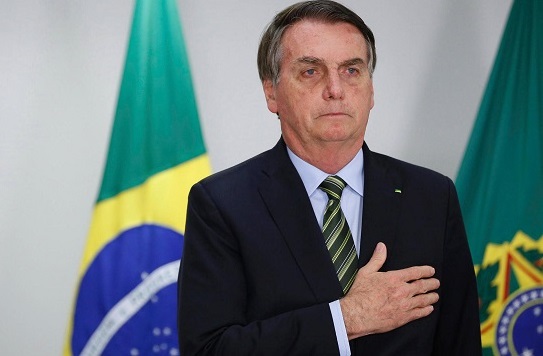Now Reading: Ford to close three plants in Brazil, take $4.1 billion in pretax charges
-
01
Ford to close three plants in Brazil, take $4.1 billion in pretax charges
Ford to close three plants in Brazil, take $4.1 billion in pretax charges

Ford Motor said on Monday it will shut its three plants in Brazil this year and take pretax charges of about $4.1 billion as the COVID-19 pandemic amplified the automaker’s underuse of its manufacturing capacity.
Production will cease immediately at the automakers’ plants in Camaçari and Taubaté, with some components production continuing for a few months to support inventories for aftermarket sales. The Troller plant in Belo Horizonte, Brazil, will keep operating until the fourth quarter.
Ford officials said the action was part of the $11 billion global restructuring earlier forecast by the U.S. automaker, of which it had accounted for $4.2 billion through the third quarter of the last year.
The plant closures affect about 5,000 workers, mainly in Brazil, Ford spokesman T.R. Reid said on a conference call with reporters.
Industry vehicle sales dropped 26% in Brazil last year and are not expected to recover to 2019 levels until 2023 with an emphasis on less profitable fleet sales according to Ford.
“We know these are very difficult, but necessary, actions to create a healthy and sustainable business,” said Jim Farley, the CEO of Ford. “We are moving to a lean, asset-light business model by ceasing production in Brazil.”
Ford officials said the plant shutdowns are part of the automakers’ strategy to achieve 8% worldwide operating margins. Ford, which has operated in Brazil for over a century, has started discussions with its unions and others regarding the layoffs.
Brazil’s Economy Ministry lamented the automaker’s decision to put an end to its production in the country and said it reinforced the need for reforms to improve the business climate.
The automaker said it will maintain its product development center in Bahia, its proving ground in Tatuí, São Paulo, and its local headquarters in São Paulo.
Of the $4.1 billion in charges, Ford said it expects to record about $2.5 billion in the fourth quarter of the last year and about $1.6 billion in 2021. The charges include about $1.6 billion in non-cash charges and the rest in cash, mainly in 2021 to cover the layoffs.
Stay Informed With the Latest & Most Important News
Previous Post
Next Post
-
 01Polestar Boss Says It’s Time To Outrun BMW M And Mercedes-AMG
01Polestar Boss Says It’s Time To Outrun BMW M And Mercedes-AMG -
 02Spy Shots: 2027 Mitsubishi Pajero Spotted in Testing Ahead of Possible U.S. Return
02Spy Shots: 2027 Mitsubishi Pajero Spotted in Testing Ahead of Possible U.S. Return -
 032026 Toyota Hilux EV: A Powerful Truck with Silent Torque
032026 Toyota Hilux EV: A Powerful Truck with Silent Torque -
 04Spy Photos: VW ID. Polo GTI Goes Electric with 223 HP and 280 Miles of Range
04Spy Photos: VW ID. Polo GTI Goes Electric with 223 HP and 280 Miles of Range -
![2027 Mercedes-Benz S-Class Debuts with V8 Engine [Photo Gallery]](https://speedlux.com/wp-content/uploads/2026/01/2027-Mercedes-Benz-S-Class-33-155x125.jpg) 052027 Mercedes-Benz S-Class Debuts with V8 Engine [Photo Gallery]
052027 Mercedes-Benz S-Class Debuts with V8 Engine [Photo Gallery] -
 06The Controversial Ford Voodoo V8 That Was Killed Off Too Early
06The Controversial Ford Voodoo V8 That Was Killed Off Too Early -
 07Hyundai Palisade’s Breakout Year Shows How Quickly the Market Can Turn
07Hyundai Palisade’s Breakout Year Shows How Quickly the Market Can Turn



![2027 Mercedes-Benz S-Class Debuts with V8 Engine [Photo Gallery]](https://speedlux.com/wp-content/uploads/2026/01/2027-Mercedes-Benz-S-Class-33-700x394.jpg)










































